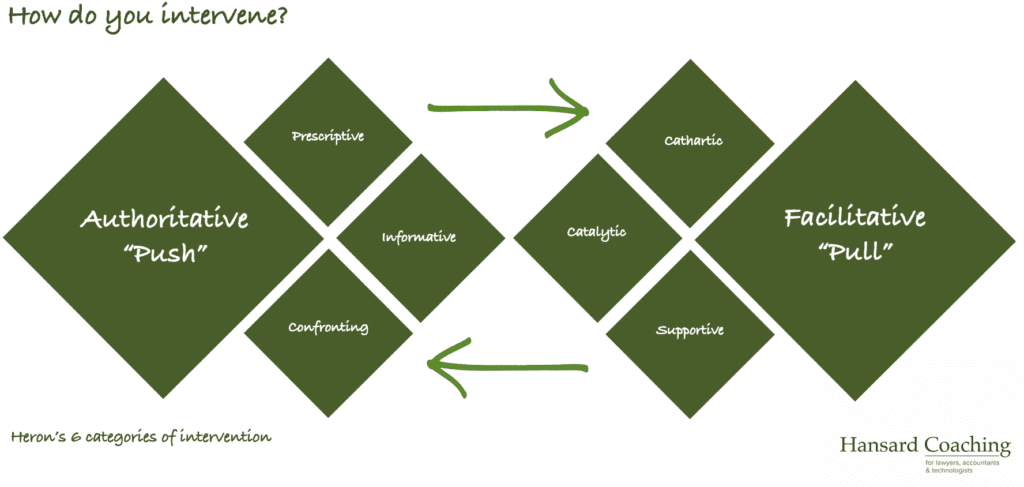Should I step in or hold back?

One of the toughest things to do as a leader is to know when to intervene. Yes, we all like things done our way, but when should we step in and when should we hold back? All too often we act instinctively and intervene when it feels right. Sometimes being more considered before taking action can pay real dividends.
One of the best ways to think about intervention I have come across is “Heron‘s Categories of Intervention”. It’s a really handy way to help think through when and how to get involved. Use it thoughtfully and purposefully and you should be able to get just that little bit more out of those you lead and work with.
Heron considers intervention in two buckets. When they are being authoritative, a leader is pushing their point of view or desired outcome on those with whom they work. In a task-oriented context this can be useful or just plain necessary.

Even when, pushing our colleagues to do things, we can do this in different ways. We can prescribe a solution, help others derive solutions by being informative, or rarely, just be plain confrontational. Being aware of which style to use to push a group or individual is a key part of the toolkit of a great leader and will always vary depending on the task(s) and individual(s).
In other situations, a leader can be facilitative, and pull those around him or her towards an outcome which even the leader has yet to identify. Again, Heron describes this pull in three dimensions.
Cathartic, and/or supportive approaches imply a degree of emotional holding, a useful technique in moments of high stress or intensive work. A catalytic approach to be used when trying to give a team energy and inspiration to get things done in a creative or collaborative context, for example, when attempting changing or planning a new, challenging project.
Heron’s categories are relevant in a range of contexts and so offer leaders a useful set of dials to adjust when trying to get the best outcome from a group or an individual. Use them wisely but most importantly deliberately, often in combination, and you will have a better chance of maximising the talents of those around you.